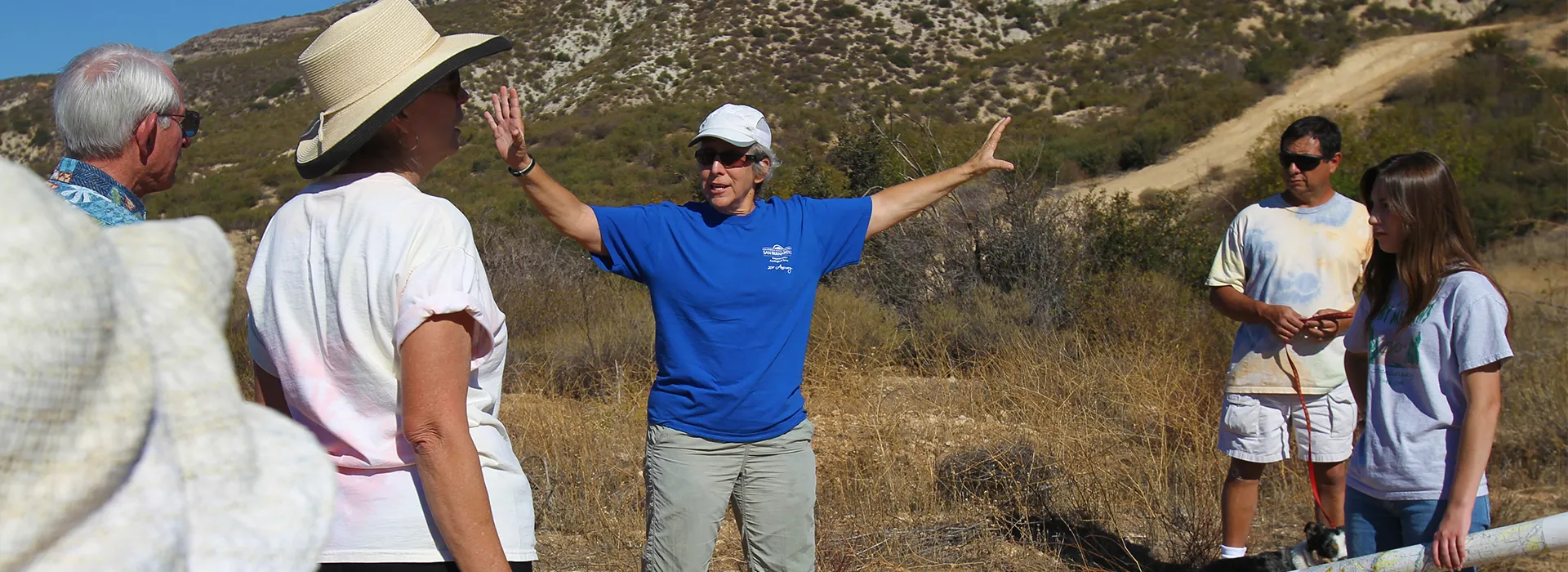Joe Gutierrez Office of Strategic Communication (909) 537-5007 joeg@csusb.edu

Cal State San Bernardino will join hundreds of colleges, universities and other organizations throughout the state, the country and around the world to “drop, cover and hold on” as part of the 11th annual “Great ShakeOut” simulated earthquake drill on Thursday, Oct. 17.
The exercise, considered the world’s largest earthquake drill, will take place at 10:17 a.m., said April Wing, manager, CSUSB Emergency Management and Business Continuity.
In addition to the earthquake preparedness drill, CSUSB geology professor Joan Fryxell will again lead a hike to a section of the San Andreas Fault north of the campus. The group will meet at 9:30 a.m. at the north side of the biology building and walk to the fault, where they will stand on the fault trace during the “virtual earthquake” at 10:17 a.m. People interested in doing the hike should wear good walking shoes, sun protection and bring water, Fryxell said.
Emergency officials created the ShakeOut drill, which began in California in 2008, to encourage people and organizations to be prepared in order to survive and recover when the next big earthquake happens, said Wing. To date, more than 9.1 million have registered for the drill and nearly 35 million worldwide are expected to participate in the 2019 Great California ShakeOut.
“Our intention is for CSUSB to be aware of what to do before, during and after an earthquake, and to be aware and prepare for any disaster,” Wing said. “We are treating the Great ShakeOut drill as if it were an actual earthquake. We want our students, faculty and staff to ‘drop, cover, and hold on’ when the drill occurs.”
At 10:17 a.m. on Oct. 17, the campus community will be notified via the university’s various communications systems that the campus has experienced a major earthquake. These messages will further test CSUSB’s communications channels through text messaging, voice messages, email, social media and website notices.
The messages will instruct faculty, staff and students who are inside a building to stay where they are and then “drop, cover and hold on.” People on campus who are outside will be asked to move to a clearing away from buildings, power lines or trees.
During the self-led drill, the university encourages students, faculty and staff to practice how to “Drop, Cover, and Hold On.” Endorsed by emergency officials and first responders, the safe response to an earthquake is to:
DROP where you are, onto your hands and knees. This position protects you from being knocked down and allows you to stay low and crawl to shelter if nearby.
COVER your head and neck with one arm and hand
- If a sturdy table or desk is nearby, crawl underneath it for shelter
- If no shelter is nearby, crawl next to an interior wall (away from windows)
- Stay on your knees; bend over to protect vital organs
HOLD ON until shaking stops
- Under shelter: hold on to it with one hand; be ready to move with your shelter if it shifts
- No shelter: hold on to your head and neck with both arms and hands
The earthquake drill also serves as a reminder for individuals to review and update their emergency preparedness plans and supplies, and to secure any furnishings, fixtures and items at home and other locations to prevent damage and injuries.
Officials estimate that an earthquake of a severe magnitude will sever local access to water, electricity, gas, fiber-optics, telecommunications, roads and railways, and that there will be extensive damage throughout the region.
Earlier this year on July 4 and 5, earthquakes centered close to Ridgecrest and the nearby town of Trona. The first mainshock of 6.4 magnitude (now deemed to be a foreshock) occurred on July 4. The next day, two quakes, a 5.4 magnitude and 7.1 magnitude struck the area. The 7.1 magnitude quake, now considered the mainshock, was the most powerful earthquake to hit the state in 20 years.
The quakes serve as reminders that large earthquakes can occur with little to no warning. Citizens in the central U.S. are not immune to earthquakes – the region is home to several active seismic zones capable of producing damaging earthquakes, including the New Madrid and Wabash Valley Seismic Zones.
For more information about the event, visit the Great ShakeOut website.
For more information about Cal State San Bernardino’s participation in the Great ShakeOut, contact April Wing, CSUSB emergency manager, at (909) 537-7477 or April.Wing@csusb.edu.